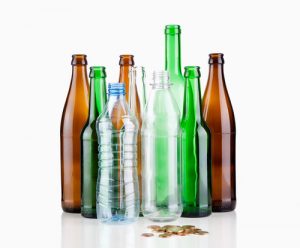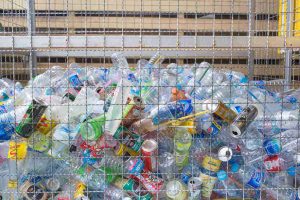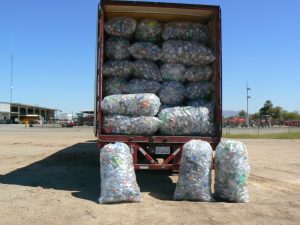 Two pieces of legislation recently introduced in Connecticut aim to reshape the state’s deposit system. One bill expands the state’s 5-cent deposit on beverage containers, and the other removes it.
Two pieces of legislation recently introduced in Connecticut aim to reshape the state’s deposit system. One bill expands the state’s 5-cent deposit on beverage containers, and the other removes it.

 Two pieces of legislation recently introduced in Connecticut aim to reshape the state’s deposit system. One bill expands the state’s 5-cent deposit on beverage containers, and the other removes it.
Two pieces of legislation recently introduced in Connecticut aim to reshape the state’s deposit system. One bill expands the state’s 5-cent deposit on beverage containers, and the other removes it.
 Legislative movement on a pair of bills in the Hawkeye State has drawn recycling industry interest in recent days.
Legislative movement on a pair of bills in the Hawkeye State has drawn recycling industry interest in recent days.
 With the frequency of container deposit-related legislation, advocates often look to other states for examples of what to expect when a new law is proposed, and there’s no shortage of states to refer to.
With the frequency of container deposit-related legislation, advocates often look to other states for examples of what to expect when a new law is proposed, and there’s no shortage of states to refer to.
 The Golden State’s container redemption program differs from bottle bills in other states, and according to a new study, that might be bringing it down.
The Golden State’s container redemption program differs from bottle bills in other states, and according to a new study, that might be bringing it down.
 California officials say they intercepted two semi-trucks carrying used beverage containers from Arizona to California, where they were going to be illegally redeemed.
California officials say they intercepted two semi-trucks carrying used beverage containers from Arizona to California, where they were going to be illegally redeemed.
 Maine’s lawmakers and governor are fighting a big battle over small containers. The legislature wants to place a deposit on liquor bottles called “nips,” but Gov. Paul LePage is vowing to fight it.
Maine’s lawmakers and governor are fighting a big battle over small containers. The legislature wants to place a deposit on liquor bottles called “nips,” but Gov. Paul LePage is vowing to fight it.
 Paper giant Cascades closes a Maine mill consuming recovered fiber, and Winnipeg notches a high recycling rate but receives more missed pick-up complaints.
Paper giant Cascades closes a Maine mill consuming recovered fiber, and Winnipeg notches a high recycling rate but receives more missed pick-up complaints.
 A Canadian city drives its curbside contamination rates down, and a U.S. city increases recycling tonnages by 20 percent.
A Canadian city drives its curbside contamination rates down, and a U.S. city increases recycling tonnages by 20 percent.
 Chicago wants to better educate residents of a neighborhood posting a 6 percent diversion rate, and two reports calls on Michigan lawmakers to take steps to boost recycling.
Chicago wants to better educate residents of a neighborhood posting a 6 percent diversion rate, and two reports calls on Michigan lawmakers to take steps to boost recycling.
 A newspaper publishes photos showing glaring cases of contamination, and the head of a beverage association makes the case for removing certain containers from Maine’s deposit program.
A newspaper publishes photos showing glaring cases of contamination, and the head of a beverage association makes the case for removing certain containers from Maine’s deposit program.
